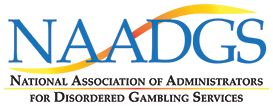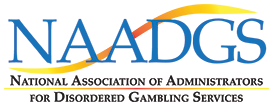Victor Ortiz, MSW, LADC I, CADC II, APGSA member and Problem Gambling Program Administrator for the Massachusetts Department of Public Health (MDPH) explains how he uses a public health approach to address problem gambling through client engagement, equity, and empowerment. Research indicates that ethnic and racial minorities have higher rates of gambling problems than the general adult population. This article describes how a social-ecological model of community engagement using the community’s voice informs the program and increases work in a complete continuum of care including prevention, intervention, treatment, and recovery support.
Introduction
The Expanded Gaming Act of 2011 created a new era and changing landscape of gambling opportunities in Massachusetts. This law provided for the establishment of up to three destination resort casinos and one slot parlor in Massachusetts. The introduction of casinos in the Commonwealth placed an urgent need to lead a public health response to mitigate the harms associated with gambling. The purpose of this article is to describe a unique approach to the changing gambling landscape, potentially as a positive example for other jurisdictions, that is guided by the public health principles of engagement, equity, and empowerment.
The Massachusetts Department of Public Health (MDPH) promotes the health and well-being of all residents by ensuring access to high-quality public health and healthcare services, and by focusing on prevention, wellness, and health equity for all people. MDPH has a 150-year history of leading public health efforts centered on data analysis, informing policy, and providing services to promote the health and well-being for all in the Commonwealth.
Within MDPH, the Office of Problem Gambling Services (OPGS) ensures a comprehensive and integrated public health response to problem gambling by using data to inform initiatives, engaging communities, and ensuring cultural intelligence and humility. Critical to the work of MDPH and OPGS is data, the social determinants of health, with a vision of eradicating health disparities. The collective effort in leading a public health response centered on our values is unprecedented in the field of gambling.
Why a Public Health Approach?
Problem gambling is governed by a complex set of interrelating factors, causes, and determinants ranging from biology and family history to social norms and existing statutes (Messerlian, Derevensky, Gupta, 2005). Research indicates that gambling is interrelated with various health issues and disproportionately impacts individuals with mental health disorders, substance misuse disorders (Kessler, Hwang, Petukhova, Sampson, Winters, & Shaffer, 2008), and communities of color (Alegría, Petry, Hasin, Liu, Grant, & Blanco, 2009). Historically, community-level experiences of gambling and communities of color are often not the focus of problem gambling services and efforts. Preliminary research indicates that ethnic and racial minorities have higher rates of gambling problems than the adult general population (Barry, Stefanovics, Desai, Potenza, 2011).
In many cases, the drivers of risks, harms, and impacts of gambling-related problems can be found within the social determinants of health. The social determinants of health are the conditions where people live, grow, and work – which impacts health outcomes – and where the greatest levels of inequities exist (Centers for Disease Control and Prevention, 2018). A public health perspective promotes the examination of health-related phenomena through a population-based lens. In addition, public health approaches recognize the multidimensional nature of the social determinants of health, and the complex interaction of many factors – biological, behavioral, social, and environmental – when developing effective interventions (Childress, Faden, Gaare, Gostin, Kahn, Bonnie, & Nieburg, 2002). The intersection of these factors is the cornerstone of a public health perspective and a social-ecological method that is the foundation for effective interventions.
A social-ecological method is a comprehensive approach that is rooted in the principles of public health and incorporates the individual, family, and community to mitigate harms associated with gambling. In contrast to programs, policies, and practices focused only on the individual, this approach actively: (1) engages individuals at different levels of risk, (2) considers the social and environmental context in which individuals live and thrive, and (3) adheres to principles of cultural competence (SAMHSA, 2019).
Equity, Engagement, and Empowerment: A Path Forward to Mitigate Harm
Since 2016, OPGS has implemented a social-ecological method to carry out a public health response to problem gambling. OPGS has engaged over 1,000 community members along with over 40 community-based organizational partners to inform the development of priorities and ensure that cultural and community perspectives are embedded in our work. Community input has informed 23 initiatives across the continuum of care: prevention, intervention, treatment, and recovery support. Public health requires “public” participation to plan, develop and implement strategies. Addressing the social determinants of health and associated inequities requires broad sectors’ expertise and direct engagement with those impacted by inequities in order to create a path for empowerment. Throughout the community engagement process, the community voice is clear. Some of the prominent themes from this engagement are to: tailor interventions to the need of the community, ensure that the community is involved in the planning and development of services, and ensure that programs are culturally appropriate. It is important to understand the community voice within a community context.
For example, OPGS has done extensive work in Springfield, Massachusetts. Springfield is located in Hamden County and home to the first resort-style casino in the Commonwealth. Hampden County for six years in a row has been identified as the unhealthiest county in Massachusetts in both health outcomes and factors (County Health Ranking Report, 2018). According to the 2017 Hampden County Health Improvement Plan, Hampden County is challenged with an opioid epidemic and a county-wide higher than average rate of drug and alcohol use, combined with disproportionately low access to mental health services and poor mental health status.
People of color in Springfield are disproportionately impacted by such public health factors. As an example, Springfield is the third largest city in Massachusetts, and is home to an estimated 69,243 Latinos, who make up 45.1% of the city’s population (Granberry & Mattos, 2017). In addition to significant disparities in health, Latinos also face great disparities in education and employment – two key predictors for risks relating to problem gambling (Williams, Zorn, Volberg, Stanek, Freeman, Maziya, Naveed, Zhang, & Pekow, 2017). Health disparities emerge when some groups of people have more access to opportunities and resources over their lifetime and across generations than other groups (County Health Ranking Report, 2018).
Such facts, along with the community voice, require comprehensive, community-centered, and evidence-based prevention efforts that incorporate the social determinants of health and the social-ecological method to reduce problem gambling risk and increase protective factors.
To address this, OPGS has engaged Springfield residents through a regional planning process and annual stakeholder listening sessions, which focused on problem gambling and the related social determinants of health. Information gathered greatly informed OPGS programming at several levels of the social-ecological model. Such programs are driven by community members, which increases empowerment and capacity. Working alongside communities of color is paramount to OPGS’s success in Springfield.
Below is a snapshot of some the evidence-informed prevention programs led by OPGS that incorporate equity, engagement, and empowerment:
- The Massachusetts Photovoice Project: A positive youth development program for youth and caregivers addressing problem gambling prevention. It is centered on a participatory approach to engage local youth in using the Photovoice model to help prevent problem gambling in their community. This approach to community change-making places youth, particularly those who experience disparities and inequitable balances of power, at the center of community change.
- The Massachusetts Ambassador Project: A peer-led prevention program that trains men of color with a history of substance misuse to lead peer-to-peer conversations about problem gambling prevention.
- Men of Color with a History of Substance Misuse: Public Awareness Campaign: An effort to raise awareness about the links between substance misuse and problem gambling.
- The Community Level Health Project: An innovative, upstream gambling prevention project that is centered on the engagement of community stakeholders and multi-sector collaboration. It aims to identify and address a specific gambling-related health concern that builds off a community health improvement plan.
- Community Health Workers (CHWs) and Gambling Pilot: A community-based initiative designed to engage and educate local neighborhoods of Springfield about harms related to gambling, resources, and services. CHWs gather and share local neighborhood concerns to inform local health policy and strategies for environmental change. This initiative is the first of its kind for taking a community and public health policy focus to gambling and related issues.
At MDPH, we are committed to optimizing the health and well-being of all residents of the Commonwealth. Achieving the mission would be impossible without the critical partnerships and collaborations between OPGS and its stakeholders in the collective effort to mitigate harms associated with gambling and casinos.
Please visit the Office of Problem Gambling Services website for more information.
References
Alegría, A.A., Petry, N.M., Hasin, D.S., Liu, S.M., Grant, B.F., & Blanco, C. (2009). Disordered gambling among racial and ethnic groups in the US: Results from the National Epidemiologic Survey on Alcohol and Related Conditions. CNS spectrums, 14(3), 132-143.
Barry, D.T., Stefanovics E.A., Desai, R.A., Potenza, M.N. (2011). Differences in the Associations between Gambling Problem Severity and Psychiatric Disorders among Black and White Adults: Findings from the National Epidemiologic Survey on Alcohol and Related Conditions. Am J Addictions, 20(1), 69–77.
Centers for Disease Control and Prevention. (2018). Social Determinants of Health: Know What Affects Health. https://www.cdc.gov/socialdeterminants/index.htm
Childress, J.F., Faden, R.R., Gaare, R.D., Gostin, L.O., Kahn, J., Bonnie, R.J., & Nieburg, P. (2002). Public health ethics: Mapping the terrain. The Journal of Law, Medicine & Ethics, 30(2), 170-178.
Granberry, P. & Mattos, T. (2017). Latinos in Massachusetts Selected Areas: Springfield. Gastón Institute Publications. 224. https://scholarworks.umb.edu/gaston_pubs/224
Kessler, R.C., Hwang, I., LaBrie, R., Petukhova, M., Sampson, N.A., Winters, K.C., & Shaffer, H.J. (2008). DSM-IV pathological gambling in the National Comorbidity Survey Replication. Psychological medicine, 38(9), 1351-1360.
Messerlian, C., Derevensky, J., & Gupta, R. (2005). Youth gambling problems: A public health perspective. Health promotion international, 20(1), 69-79.
SAMHSA. (2019). A Guide to SAMHSA’s Strategic Prevention Framework. Rockville, MD: Center for Substance Abuse Prevention. Substance Abuse and Mental Health Services Administration.
University of Wisconsin Population Health Institute. County Health Rankings 2018.
Williams, R.J., Zorn, M., Volberg, R.A., Stanek, E.J., Freeman, J., Maziya, N., Naveed, M., Zhang, Y., & Pekow, P. S. (2017). Gambling and Problem Gambling in Massachusetts: In-Depth Analysis of Predictors. Amherst, MA: School of Public Health and Health Sciences, University of Massachusetts Amherst.
Funding Acknowledgment
Victor Ortiz prepared this op-ed as part of his role as Director of the Office of Problem Gambling Services at the Massachusetts Department of Public Health.

Author Biography
Victor Ortiz is a social worker with over twenty-five years of experience in program and service development in areas of addiction, youth development, child welfare, and behavioral health. He has worked extensively with a wide range of populations to address health disparities and promote health and racial equity. Victor has served in various professional positions advocating for and improving access to care for individuals and families.
In 2009, Victor received a BSW from Anna Maria College. He was recognized for academic excellence while serving as a mentor to students seeking professional guidance. Victor received national scholarship recognition from the National Association of Social Workers and the Council on Social Work Education for his many years of advocacy in the Latinx community. In 2010, Victor received an MSW from Simmons College School of Social Work.
Victor is a nationally recognized speaker, trainer, and educator in the areas of addiction, gambling disorders, and cultural intelligence and humility. Victor is currently the Director of the Office of Problem Gambling Services at the Massachusetts Department of Public Health.


